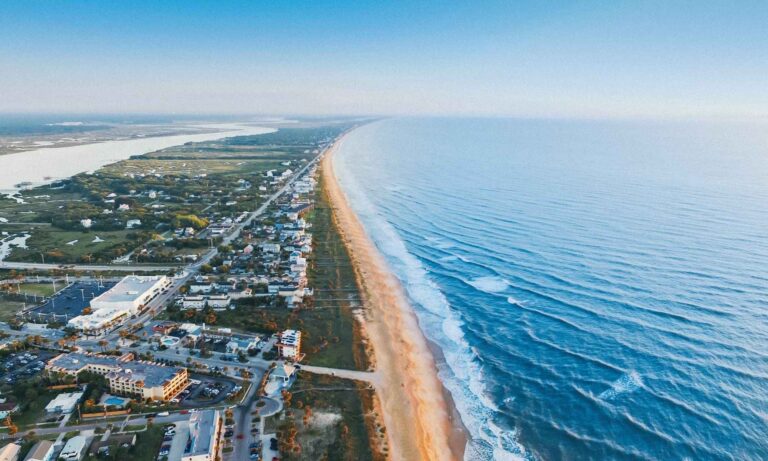Unlock Your Fishing Adventure: Learn How to Get Your Oregon Fishing License
To get your Oregon fishing license, visit the Oregon Department of Fish and Wildlife website and follow their simple online application process. Whether you’re a resident or non-resident, you’ll need to provide your personal information, select the type of license you need, and pay the required fee.
Once approved, you can print or save your license and start enjoying fishing in Oregon’s beautiful waters. Fishing licenses are required for anyone 12 years or older, with different options available depending on your fishing preferences and duration of stay.
With an Oregon fishing license, you can pursue various species of fish in rivers, lakes, and coastal areas throughout the state, ensuring a memorable angling experience for both residents and visitors.
Why Having An Oregon Fishing License Is Essential
Why Having an Oregon Fishing License is Essential
Are you planning on casting a line into the picturesque waters of Oregon? Before you grab your fishing gear and head out, there’s an essential requirement you need to fulfill: obtaining an Oregon fishing license. Wondering why it’s so important? Let’s delve into the legal requirements for fishing in Oregon and understand how having a fishing license contributes to conservation and fisheries management.
H3legal Requirements For Fishing In Oregon: Understanding The Need For A Fishing License/h3
When it comes to fishing in Oregon, it’s crucial to understand the legal requirements. The Oregon Department of Fish and Wildlife (ODFW) mandates that anyone aged 12 or older must possess a valid fishing license to cast their line into Oregon’s waters. Whether you’re a resident or a non-resident, the fishing license serves as proof that you have paid the necessary fees and complied with the regulations set forth by the ODFW.
But why exactly is a fishing license required? Oregon’s fishing license fees play a vital role in supporting fish populations and maintaining the delicate ecological balance of its water bodies. The revenue generated from fishing license sales contributes to crucial conservation efforts and fisheries management.
H3importance Of Conservation And Fisheries Management: How Fishing Licenses Support Fish Populations And Ecological Balance/h3
Fishing licenses are not merely a legal requirement but a means to ensure the sustainable management of fisheries in Oregon. The revenue generated from fishing license fees goes directly towards conservation initiatives aimed at preserving and enhancing fish populations.
To better comprehend the importance of fishing licenses for conservation and fisheries management, let’s take a closer look at how they make a difference:
- Funding for Fish Hatcheries and Stocking Programs: Fishing license fees provide funding for fish hatcheries, ensuring the continuous stocking of fish. These hatcheries ensure the sustainability of fish populations and compensate for the natural loss of fish due to factors such as predation or poor breeding conditions.
- Habitat Conservation and Restoration: The revenue from fishing licenses enables the ODFW to invest in habitat conservation and restoration projects. These include initiatives such as riparian habitat restoration, stream bank stabilization, and the creation of fish-friendly environments. Such endeavors help maintain healthy ecosystems and promote the well-being of fish species in Oregon’s waters.
- Research and Monitoring: Fishing license fees support crucial research and monitoring efforts. These efforts range from studies on fish populations, health assessments, and habitat evaluations to monitoring the impacts of different fishing practices. By understanding fish populations and their habitats, the ODFW can make informed decisions to ensure the sustainable management of fisheries.
By obtaining an Oregon fishing license, you actively contribute to the conservation and sustainable management of Oregon’s fish populations and ecosystems. Not only does it comply with legal requirements, but it also demonstrates your commitment to preserving the natural beauty and diversity of Oregon’s waters.
Types Of Oregon Fishing Licenses
When it comes to fishing in Oregon, it’s important to have the right licenses to ensure a legal and enjoyable angling experience. The Oregon Department of Fish and Wildlife (ODFW) offers a variety of fishing licenses tailored to meet the needs of different individuals and situations. Whether you are a resident, a non-resident visitor, a youth or senior citizen, or someone with disabilities, there is a fishing license option for you. Let’s dive into the different types of Oregon fishing licenses:
Resident Fishing Licenses: Eligibility And Requirements For Oregon Residents
If you are a resident of Oregon and want to explore the state’s abundant fishing opportunities, you will need a resident fishing license. This license is specifically designed for individuals who permanently reside in Oregon. To be eligible, you must provide proof of residency, such as an Oregon driver’s license or state ID card. The requirements for obtaining a resident fishing license may differ based on factors like age and duration of residency. Here are some key points to consider:
- To qualify as an Oregon resident, you must have lived in the state for at least six consecutive months.
- Proof of residency can also include items like a lease agreement, utility bill, or voter registration card.
- There are options for annual resident fishing licenses, as well as short-term licenses for those who only plan to fish for a brief period.
Non-resident Fishing Licenses: Options Available For Visitors And Out-of-state Anglers
If you are visiting Oregon or reside outside the state but want to experience its fantastic fishing offerings, you can obtain a non-resident fishing license. This license allows you to fish in Oregon’s rivers, lakes, and coastal waters, ensuring you stay compliant with local regulations. Here are some important details to keep in mind:
- Non-resident fishing licenses are available for different durations, ranging from one day to one year.
- While non-residents have access to the same fishing opportunities as residents, the fees for non-resident licenses may vary.
- It’s crucial to check the specific rules and regulations in the area you plan to fish, as certain waterbodies may have additional requirements or limitations for non-residents.
Youth And Senior Fishing Licenses: Special Considerations For Young Anglers And Senior Citizens
Oregon recognizes the special needs and circumstances of both young and senior anglers, offering fishing licenses designed with specific age-related considerations:
- Youth fishing licenses provide affordable opportunities for children and teenagers to enjoy the joys of fishing. These licenses are available at reduced rates and may have age restrictions.
- Senior fishing licenses cater to the needs of anglers who are 65 years old and above. These licenses also come at discounted prices, enabling senior citizens to continue pursuing their angling passion.
Disabled Fishing Licenses: Accessibility Options For Anglers With Disabilities
The ODFW understands the importance of ensuring fishing accessibility for individuals with disabilities. As such, they provide disabled fishing licenses that accommodate the unique situations of anglers with disabilities. Here are some key features of these licenses:
- Disabled fishing licenses are available for residents and non-residents with verified disabilities.
- These licenses may offer reduced fees and additional opportunities, such as fishing at designated accessible sites or using adaptive equipment.
- Proper documentation, such as a physician’s statement or disability certification, is typically required to obtain a disabled fishing license.
By offering a range of fishing license options, Oregon ensures that every angler can enjoy the thrill of casting a line in its pristine waters. Whether you are a resident, a visitor, a young angler, a senior citizen, or someone with disabilities, there is a fishing license tailored to your needs. So, grab your fishing gear, secure the appropriate license, and get ready to embark on unforgettable fishing adventures in beautiful Oregon.
How To Apply For An Oregon Fishing License
If you’re an avid angler or want to try your hand at fishing in Oregon, you’ll need to get a fishing license before you cast your line. Fortunately, applying for an Oregon fishing license is a simple and straightforward process. In this article, we’ll guide you through the steps to obtain your fishing license either online or in person, highlight the necessary documentation you’ll need, and provide an overview of the costs involved.
Online Application Process: Step-by-step Guide To Obtaining A Fishing License Online
Applying for an Oregon fishing license online is the quickest and most convenient option. Here’s a step-by-step guide to help you through the process:
- Visit the official website of the Oregon Department of Fish and Wildlife.
- Click on the “Buy License” or a similar link provided on the website.
- Create an account by providing your personal information.
- Select the type of fishing license you need, such as an annual resident or non-resident license.
- Choose any additional endorsement or tags that may be required for the specific fishing activities you plan to engage in.
- Proceed to the payment section and complete the transaction using a secure payment method.
- Once the payment is confirmed, you’ll receive a digital copy of your fishing license that you can print or save on your mobile device.
In-person Application Options: Visiting Local Oregon Department Of Fish And Wildlife Offices Or Authorized Retailers
If you prefer a more personal approach, you can apply for an Oregon fishing license in person. This option allows you to visit either a local Oregon Department of Fish and Wildlife office or an authorized retailer. These offices and retailers can be found throughout the state, making it convenient to apply for your fishing license offline. Simply follow these steps:
- Locate the nearest Oregon Department of Fish and Wildlife office or authorized retailer using the department’s official website.
- Gather the necessary documentation (details provided below) to bring with you when applying in person.
- Visit the office or retailer during their business hours and approach the designated counter for license applications.
- Provide the staff with your personal information, including identification and residency proof, as well as the type of fishing license you wish to obtain.
- Pay the required fees using cash, card, or any other accepted payment method.
- Once the process is complete, the staff will provide you with a physical copy of your fishing license.
Necessary Documentation: Identification And Residency Requirements For License Application
When applying for an Oregon fishing license, it is important to have the necessary documentation ready to ensure a smooth process. The required documentation may include:
- Identification Proof: A valid driver’s license, state ID, passport, or any government-issued identification document that verifies your identity.
- Residency Proof: Depending on whether you are a resident or non-resident, you may need to provide additional proof, such as a utility bill, lease agreement, or voter registration card, to establish your residency.
Cost Of Fishing Licenses: Understanding The Fees And Pricing Structures
The cost of fishing licenses in Oregon may vary depending on factors such as residency status, duration of the license, and additional endorsements or tags required. It is essential to understand the fee structure to ensure you select the correct license and endorsements for your needs. The fees can be found on the Oregon Department of Fish and Wildlife website or by visiting the local offices and authorized retailers. Make sure to review the pricing information before applying for your fishing license to avoid any surprises.
Regulations And Restrictions For Fishing In Oregon
If you’re planning to cast a line in the pristine waters of Oregon, it’s crucial to familiarize yourself with the state’s fishing regulations and restrictions. Understanding the rules not only ensures a responsible and sustainable fishing experience but also helps conserve Oregon’s diverse fish populations. In this article, we’ll explore the various regulations you need to know to obtain and maintain your Oregon fishing license.
Fishing Seasons And Limits: Knowing The Dates And Quantity Restrictions For Different Fish Species
As an angler in Oregon, staying aware of fishing seasons and quantity restrictions for different fish species is essential. Observe the following HTML table to get an overview:
| Fish Species | Season | Limits |
|---|---|---|
| Trout | Year-round | 5 trout per day |
| Salmon | Varies by species | Depends on fishery and species |
| Steelhead | Varies by river and runs | Varies by river and runs |
| Bass | Year-round | 15 warmwater game fish, no length limits |
It’s crucial to note that fishing seasons and quantity limits can vary, so always check for updates from the Oregon Department of Fish and Wildlife (ODFW) before each fishing trip. Complying with these restrictions ensures the preservation of fish populations while maximizing your fishing experience.
Catch Reporting And Tagging Requirements: Complying With Reporting Regulations And Tagging Fish When Necessary
When it comes to responsible fishing, catch reporting and tagging requirements play a significant role. By reporting your catch and following tagging regulations, you contribute to valuable fisheries management data. It’s important to:
- Record accurate details such as the location, date, and type of fish caught.
- Submit your report within the specified timeframe.
- Tag fish according to the ODFW guidelines and retain the tag throughout transportation and until consumption or processing.
By adhering to these reporting and tagging requirements, you play an active role in sustainable fishery management and help maintain the health of Oregon’s aquatic ecosystems.
Special Fishing Zones And Permits: Understanding Specific Regulations For Designated Areas And Activities
When fishing in Oregon, be aware of special fishing zones and permits that pertain to specific areas and activities. Here is an overview:
- Salmon Fishing: Certain rivers and seasons require a salmon/steelhead license or a Columbia River Basin endorsement.
- Steelhead Angling: Depending on the river and run, additional tags or permits, such as a Hatchery Harvest Tag or a Columbia River Basin Endorsement, may be required.
- Marine Reserves: Some areas are designated as marine reserves where specific fishing activities are restricted or prohibited. Familiarize yourself with these zones to ensure compliance.
Understanding and following these regulations for special zones and permits is vital for maintaining the health and viability of targeted fish populations and their habitats.
Conservation Measures And Protected Species: Guidelines For Handling Protected Or Endangered Species During Fishing Activities
Conserving Oregon’s diverse ecosystems means taking proper care of protected and endangered species during fishing activities. When encountering these species, remember the following:
- Handle protected species with extreme care, avoiding any harm or unnecessary stress.
- Follow guidelines provided by the ODFW for releasing protected species back into the water.
- Avoid targeting protected species intentionally, and promptly release them if accidentally caught.
By prioritizing the conservation of these valuable species, you contribute to preserving Oregon’s natural heritage for future generations.
Conclusion
Obtaining your Oregon fishing license is a straightforward process that allows you to explore the state’s abundant fishing opportunities. By understanding the requirements and following the necessary steps, you can ensure compliance with regulations while enjoying your angling adventures. Whether you’re a resident or a nonresident, don’t miss out on this essential document that opens up a world of fishing possibilities in beautiful Oregon.
Get your fishing license today and cast your line into the state’s pristine waters.



